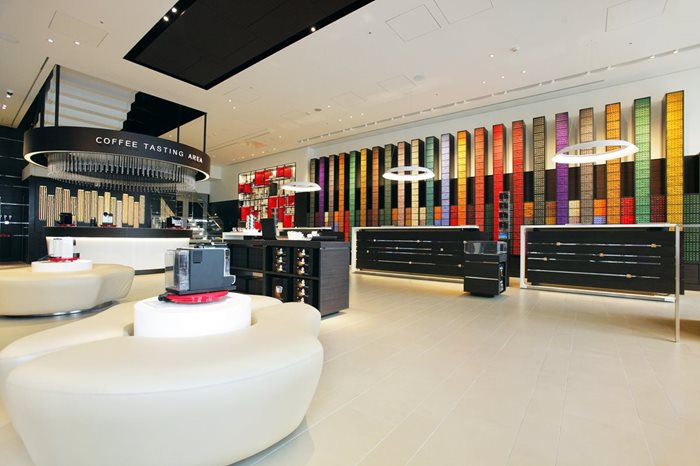Swiss food and beverage credits Starbucks licensing agreement as a major factor behind positive third quarter results

A Nespresso boutique store in Tokyo, Japan
Nestlé’s $7.2bn licensing agreement to market Starbucks branded consumer and foodservice products appears to be paying off as consumers worldwide adopt premium at-home coffee products. The Swiss food and beverage giant reported ‘strong demand’ for its Starbucks retail products, which have been launched in 34 markets internationally. The Swiss food and beverage also credited the licensing agreement as a major factor behind a sales increase of 5.5% in its third quarter results.
Total reported sales increased by 2.9% to CHF 68.4bn ($69.2bn), up from CHF 66.4bn ($67.1bn) during the same period in 2018. Nestlé expects full year sales growth of 3.5%.
In the US, Nestlé saw ‘mid-single-digit growth’, for its Starbucks and Nescafé coffee products, with the launch of Starbucks-branded creamers generating positive sales. Latin America also experienced ‘strong demand’ for Nescafé, according to Nestlé. The launch of Starbucks-branded retail products across 20 countries across Europe, the Middle East and North Africa (EMENA) contributed to ‘positive growth’ for coffee across the region.
“We continue to see good momentum in our largest market, the United States,” said Mark Schneider, Nestlé CEO. “During the third quarter, the roll-out of Starbucks products continued, now reaching 34 countries,” he added.
Announced in May 2018, the ‘
Global Coffee Alliance’ marked a major phase of cooperation between Nestlé and Starbucks to catalyse global Consumer Packaged Goods (CPG) and Foodservice sales. Alongside its Nescafé instant coffee brand, Nespresso pod machine system, and majority stake acquisition of boutique coffee shop chain,
Bluebottle, coffee remains a key growth category among Nestlé's diverse food, beverage, confectionary and healthcare porfolio.